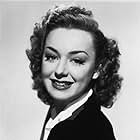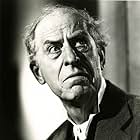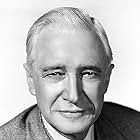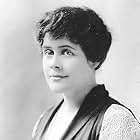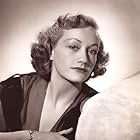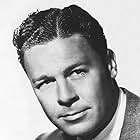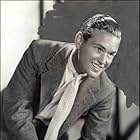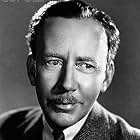Merchant Stephen Cruthers is a pillar of strength in his small Iowa town. He empathizes with his son Ray when the boy is torn between pursuing a medical career or marrying Sylvia, banker Cle... Read allMerchant Stephen Cruthers is a pillar of strength in his small Iowa town. He empathizes with his son Ray when the boy is torn between pursuing a medical career or marrying Sylvia, banker Clem Bartholomew's daughter. Stephen's good deeds extend to the reformation of the town drunk... Read allMerchant Stephen Cruthers is a pillar of strength in his small Iowa town. He empathizes with his son Ray when the boy is torn between pursuing a medical career or marrying Sylvia, banker Clem Bartholomew's daughter. Stephen's good deeds extend to the reformation of the town drunk, Mudcat, whose new gift wrapping gadget is patented by the kindly merchant. Disappointed ... Read all
- Merta Katz
- (as Alice Eden)
- Telephone Operator
- (uncredited)
- Irate Bank Customer
- (uncredited)
- Jody
- (uncredited)
- Director
- Writers
- All cast & crew
- Production, box office & more at IMDbPro
Storyline
Did you know
- TriviaFilm debut of Charles Drake, who portrays Rex Chaney.
An uncredited narrator introduces each of this 80-minute film's three parts, corresponding to the holiday of U.S. Independence Day, Thanksgiving and Christmas (eve), those which Ray Cruthers (John Archer) returns from his research studies at Johns Hopkins University, in Baltimore, to his hometown of Pittsville, Iowa.
Part One (approx. 37 minutes) begins with a map of Iowa across the screen, complete with flowing water to indicate the Mississippi River, at the east, as we are told that Pittsville lies in the extreme southwestern corner, along the Missouri River. Much of Iowa's thriving agricultural economy (even in this 1931 setting) is described with introductory visuals, before "Career" opens at the community's Independence Day festivities, at which Mayor Clem Bartholomew (Samuel S. Hinds) delivers his July 4th speech.
When two town ne'er-do-wells, the drunken Mudcat (Leon Errol) and Deacon (Raymond Hatton), debate Clem's office tenure, they stumble into the shoppe of Stephen Cruthers (Edward Ellis), to seek clarification, at which time they stumble across a set of secret old letters, which advances the plot.
Mrs. Amy Cruthers (Janet Beecher) already knows about them but upholds her dignity. Everyone in town somehow knows about them--or learns of their ramifications somewhere along the line. But, the letters aside, Ray Cruthers (John Archer) makes his entrance from Baltimore, to the open arms of Sylvia Bartholomew (Anne Shirley), the daughter of the Mayor/Banker, who happens to have a previous engagement, with Rex Chaney (Charles Drake), to view the evening's fireworks.
Sylvia and her brother, Mel Bartholomew (Maurice Murphy), who rarely appear together in a scene, form an odd alliance with Ray Cruthers in spite of the fact that their fathers, Clem Bartholomew and Stephen Cruthers stand at odds over a long-running rivalry.
Mel Bartholomew, meanwhile, often hits the bottle, much to the dismay of his fiancée, Merta Katz (Rowena Cook, billed as Alice Eden), the daughter of town drunk Madcat.
Madcat possesses a genius to hide beneath a bushel; while he is often seen not feeling much pain, along with Deacon, he has invented an automatic gift wrapper, which Ben Burnett (Harrison Greene) operates at his restaurant/malt shoppe.
When one of Pittsville's drunkards becomes injured in a July 4th accident, Ray Cruthers rises to the occasion.
Hence, as plenty of story lines and subplots are transpiring here, it is up to Ray to decide whether to continue upon his research at Johns Hopkins, or to take on a $300 per week career at a New York City hospital, which he has been offered. An undecided Ray consults his parents, as well as his intended, Sylvia.
Part Two (approx. 23 minutes) commences with the narrator's discussing Thanksgiving and setting this day upon November 26th, 1931, at which point Ray returns, once again to Sylvia and her sleek wardrobe (of styles much more reminiscent of 1939 than 1931 and Park Avenue rather than Pittsville), but Anne Shirley looks really nice throughout.
On Thanksgiving night, the townsfolk wage mob scenes with a run on the bank, rumored to be closing. By now, the contents of those secret letters (from an unseen Adele) are known to all, as well as Adele's identity and her history. Stephen Cruthers firmly establishes himself as "the voice of reason," as Mayor Clem Bartholomew is from now on seen in his capacity of Bank manager.
Thus, Sylvia, Merta and Amy are caught in alliance battles and are forced to take stands and make decisions, which may alter the outcome of civic life.
Part Three (approx. 20 minutes) follows additional narrative and visuals, heralding in Christmas Eve, 1931, and Ray's third return via train to Pittsville.
Little progress has been made in-between-whiles. It would seem that shopping, banking, decision-making are reserved for the holidays here.
Sylvia, in long white ermine, must decide between Ray, Rex or neither, while Merta must decide on a life with or without Mel, who must decide whether or not to ease on the bottle, as must Mudcat, while Amy and Stephen face additional problems relating to the rifts with Clem and townsfolk alike.
Long story short, this script by Bert Granet and Dalton Trumbo, based upon the Philip Stong novel, actually does attempt several sub-plots, which, although working well together in a sudser fashion, may cause one to ponder what "Career" is all about, at least in succinct fashion.
But RKO-Radio Pictures has done well in casting Anne Shirley and company, particularly Edward Ellis and Samuel S. Hinds as Pittsville patriots, as well as Janet Beecher in a truly sympathetic role.
Rowena Cook, John Archer, Maurice Murphy, Charles Drake, along with Miss Shirley, are effective as the youth of 1939, again set in 1931 here.
And Leon Errol, Raymond Hatton, Harrison Greene plus Hobert Cavanaugh (as Jim Bronson, an investor) provide plausible and colorful townsfolk characters.
So, even though "Career" is set in southwestern Iowa in 1931 and somehow lessens its rural flavor from scene to scene, its writing rates above the average programmer, containing philosophies of liberty and justice, as well as dwelling upon the virtue of sympathy.
Details
- Runtime1 hour 20 minutes
- Color
- Aspect ratio
- 1.37 : 1
Contribute to this page







